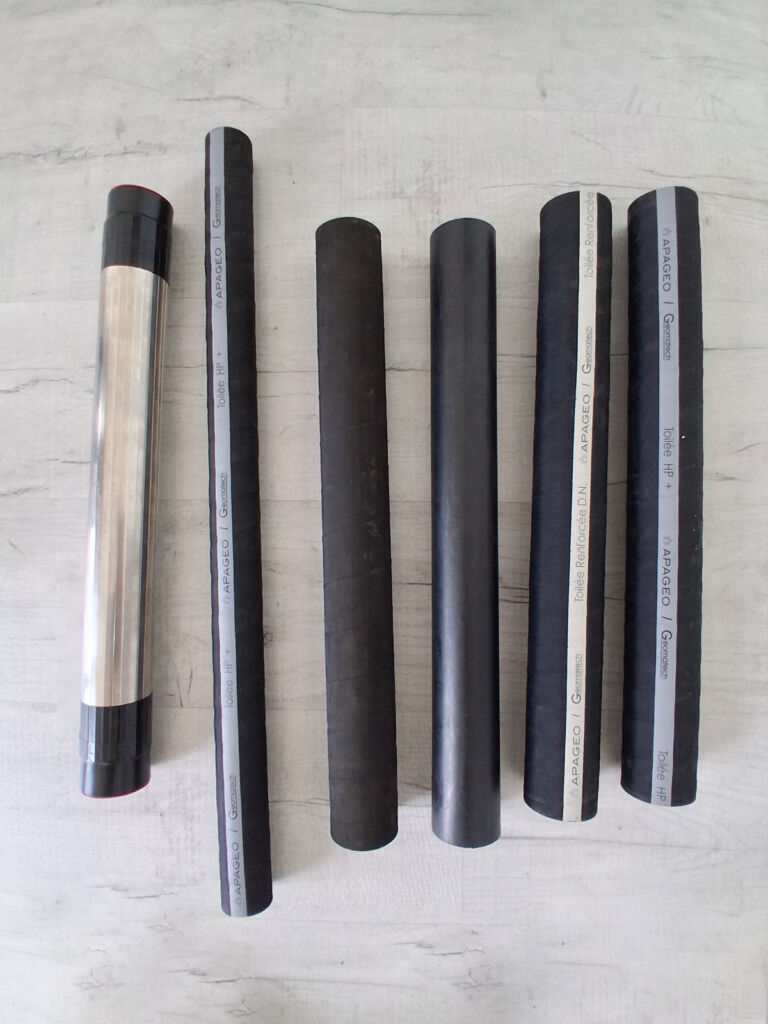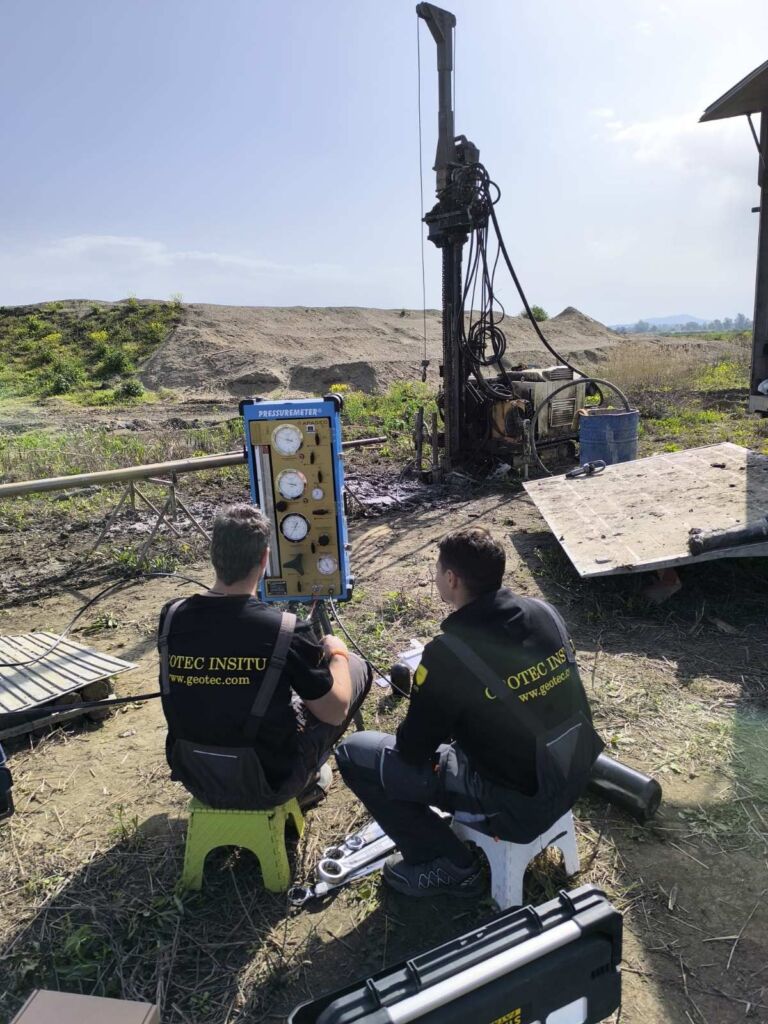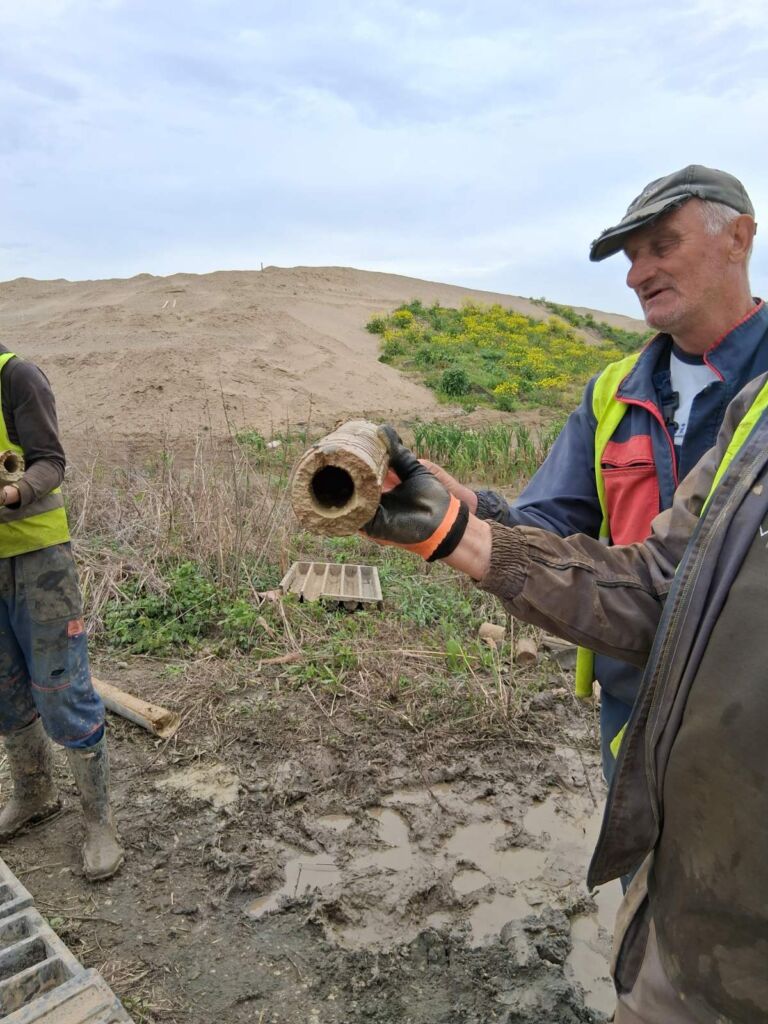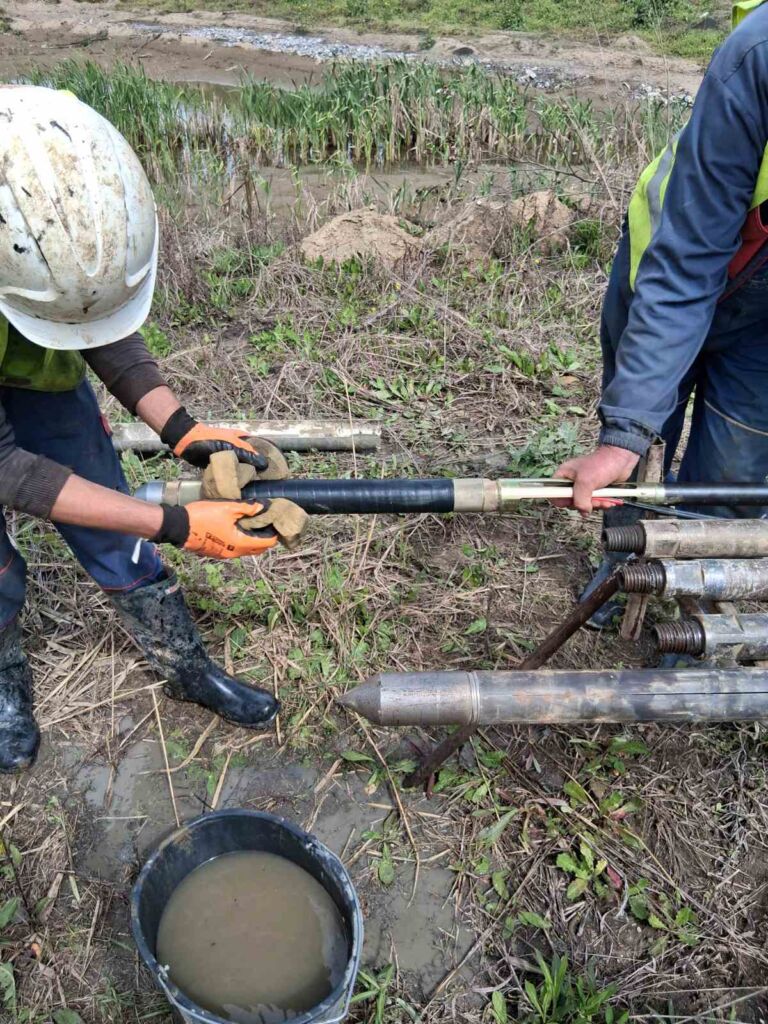The pressuremeter test is an in situ stress-strain test performed in a borehole. The test can be performed in two ways depending on the type of soil being tested.
In clayey soil, where the walls of the borehole are stable, it is necessary to prepare a pocket into which the cylindrical probe used for testing is lowered.
In sandy soil, the probe together with the slotted casing is pressed or driven to the required depth from the bottom of the borehole.
GeoTec Insitu has a G-type probe (Ø44 mm and Ø60 mm) which consists of a central measuring cell and two guard cells.


The main results of the test are:
- dependence of the change in the borehole volume on the applied pressure on the borehole wall,
- Menard’s limit pressure (plm) and
- Menard modulus (Em).
Limit pressure and modulus can be directly used for geotechnical calculations or can be used to derive soil parameters necessary for geotechnical design. The test itself takes about 10 minutes.
The MPT is often used for soil testing at depths where it is not possible to perform the CPTu and SDMT tests. The test can be performed in most soil types and in soft rocks (qu < 4 MPa).


